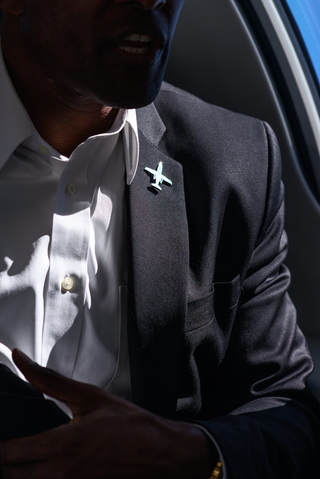semester abroad
|
A room in a house just outside of Paris,
no idea I’d be sharing the bath with José, a little Brazilian who could’ve passed for one of my cousins, that particular mix of African, Cherokee and empire. I couldn’t understand a word he said, French poured through a Portuguese accent, plus the landlady didn’t like him, all I needed to justify my annoyance of the bathroom situation. But weeks in and the landlady en vacance, the power went out, so José lit candles, invited me to share his pasta with crème fraîche. He’d never met his father either, though his mother’s boyfriend bought him art supplies, paid for drawing classes. I was surprised he was vegetarian, too, that French was his third language, that I was the provincial. Nothing happened between us, not even after the bottle of Beaujolais, not even though I’d been looking for someone to save me from being bored and lonely in Paris of all places, only our shadows touching across the walls of that tiny kitchen, city lights blinking through the foggy window and the realization that I was no longer translating each word he said, that I understood him, but even stranger, us — our faces, our very names the spoils of conquest — our passports and the languages we spoke and why, our fathers and fathers’ fathers, the back story of millions whittled down to a few pages in high school, the cowboy and Indian movies my mother refused to stop watching, that I’d rent for her years later when she was dying, flying across the Atlantic over the bones of God knows how many Africans and forgetting to even look down, to remember them if only for a few seconds. Yes, the unimaginable absence and lack and yet the unknown alive in that kitchen, too, its contradictions, its silences and hysterics, the blackness in our voices as we laughed and talked through the night — a keening, but also a kind of space, a clearing we could move through. |
|
Valencia Robin is the winner of Persea Books’ 2018 Lexi Rudnitsky First Book Prize in Poetry; her collection, Ridiculous Light, will be published in April 2019. A visual artist as well as a poet, her poetry has appeared or is forthcoming in TriQuarterly, The St. Petersburg Review, Black Renaissance Noire, Kweli, The Cortland Review, and elsewhere. She is a Cave Canem Fellow and the 2014 winner of the Hocking Hills Festival of Poetry Competition. She holds an MFA in Art & Design from the University of Michigan and an MFA in Creative Writing from the University of Virginia.
Hollis Johnson was born in 1993 in New Hampshire. He began pursuing photography in high school before attending the Massachusetts College of Art and Design, which he graduated from in 2015. He is currently based in New York City. His work projects uncanny sterility to banal objects and scenarios presented in tableau — snapshots of America drenched in sunlight yet trapped in antifreeze. His images narrate a lyrical world only just slightly askew of our own.

